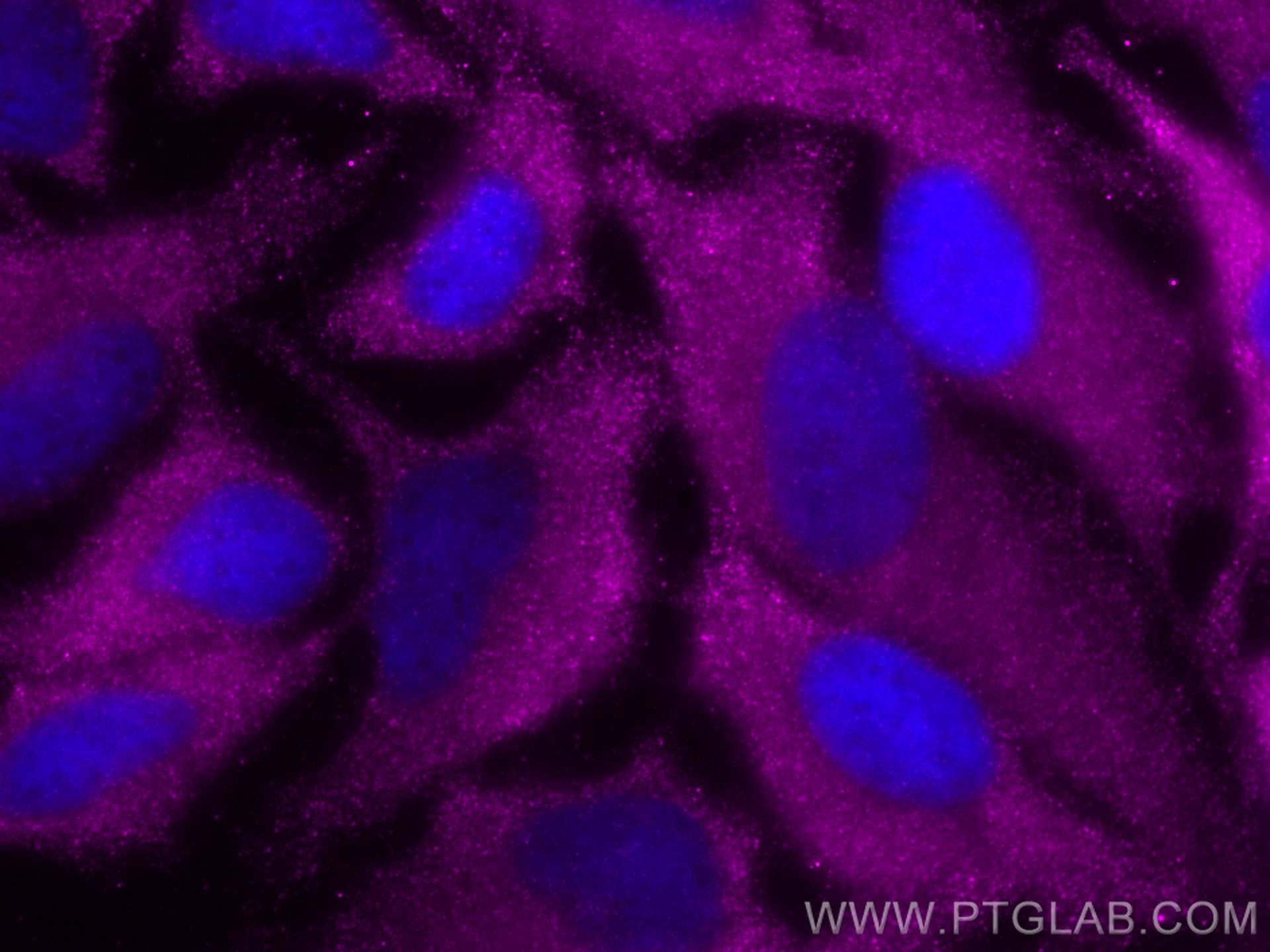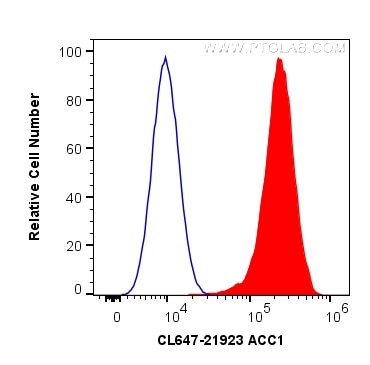- Phare
- Validé par KD/KO
Anticorps Polyclonal de lapin anti-ACC1
ACC1 Polyclonal Antibody for FC (Intra), IF
Hôte / Isotype
Lapin / IgG
Réactivité testée
Humain, rat, souris
Applications
IF, FC (Intra)
Conjugaison
CoraLite® Plus 647 Fluorescent Dye
N° de cat : CL647-21923
Synonymes
Galerie de données de validation
Applications testées
| Résultats positifs en IF | cellules HeLa, |
| Résultats positifs en cytométrie | cellules HeLa |
Dilution recommandée
| Application | Dilution |
|---|---|
| Immunofluorescence (IF) | IF : 1:50-1:500 |
| Flow Cytometry (FC) | FC : 0.20 ug per 10^6 cells in a 100 µl suspension |
| It is recommended that this reagent should be titrated in each testing system to obtain optimal results. | |
| Sample-dependent, check data in validation data gallery | |
Informations sur le produit
CL647-21923 cible ACC1 dans les applications de IF, FC (Intra) et montre une réactivité avec des échantillons Humain, rat, souris
| Réactivité | Humain, rat, souris |
| Hôte / Isotype | Lapin / IgG |
| Clonalité | Polyclonal |
| Type | Anticorps |
| Immunogène | ACC1 Protéine recombinante Ag16452 |
| Nom complet | acetyl-Coenzyme A carboxylase alpha |
| Masse moléculaire calculée | 2383 aa, 275 kDa |
| Poids moléculaire observé | 250 kDa |
| Numéro d’acquisition GenBank | BC137287 |
| Symbole du gène | ACACA |
| Identification du gène (NCBI) | 31 |
| Conjugaison | CoraLite® Plus 647 Fluorescent Dye |
| Excitation/Emission maxima wavelengths | 654 nm / 674 nm |
| Forme | Liquide |
| Méthode de purification | Purification par affinité contre l'antigène |
| Tampon de stockage | PBS avec glycérol à 50 %, Proclin300 à 0,05 % et BSA à 0,5 %, pH 7,3. |
| Conditions de stockage | Stocker à -20 °C. Éviter toute exposition à la lumière. Stable pendant un an après l'expédition. L'aliquotage n'est pas nécessaire pour le stockage à -20oC Les 20ul contiennent 0,1% de BSA. |
Informations générales
ACACA(Acetyl-CoA carboxylase 1, ACC), also named as ACAC, ACC1 and ACCA, belongs to the biotin containing enzyme family. It catalyzes the synthesis of malonyl-CoA, which is an intermediate substrate playing a pivotal role in the regulation of fatty acid metabolism and energy production. ACACA is involved in the biosynthesis of fatty acids, and malonyl-CoA produced is used as a building block to extend the chain length of fatty acids by fatty acid synthase (FAS)(PMID:19900410). It has 4 isoforms produced by alternative promoter usage with the molecular weight between 260 kDa and 270 kDa.
Protocole
| Product Specific Protocols | |
|---|---|
| IF protocol for CL Plus 647 ACC1 antibody CL647-21923 | Download protocol |
| FC protocol for CL Plus 647 ACC1 antibody CL647-21923 | Download protocol |
| Standard Protocols | |
|---|---|
| Click here to view our Standard Protocols |



